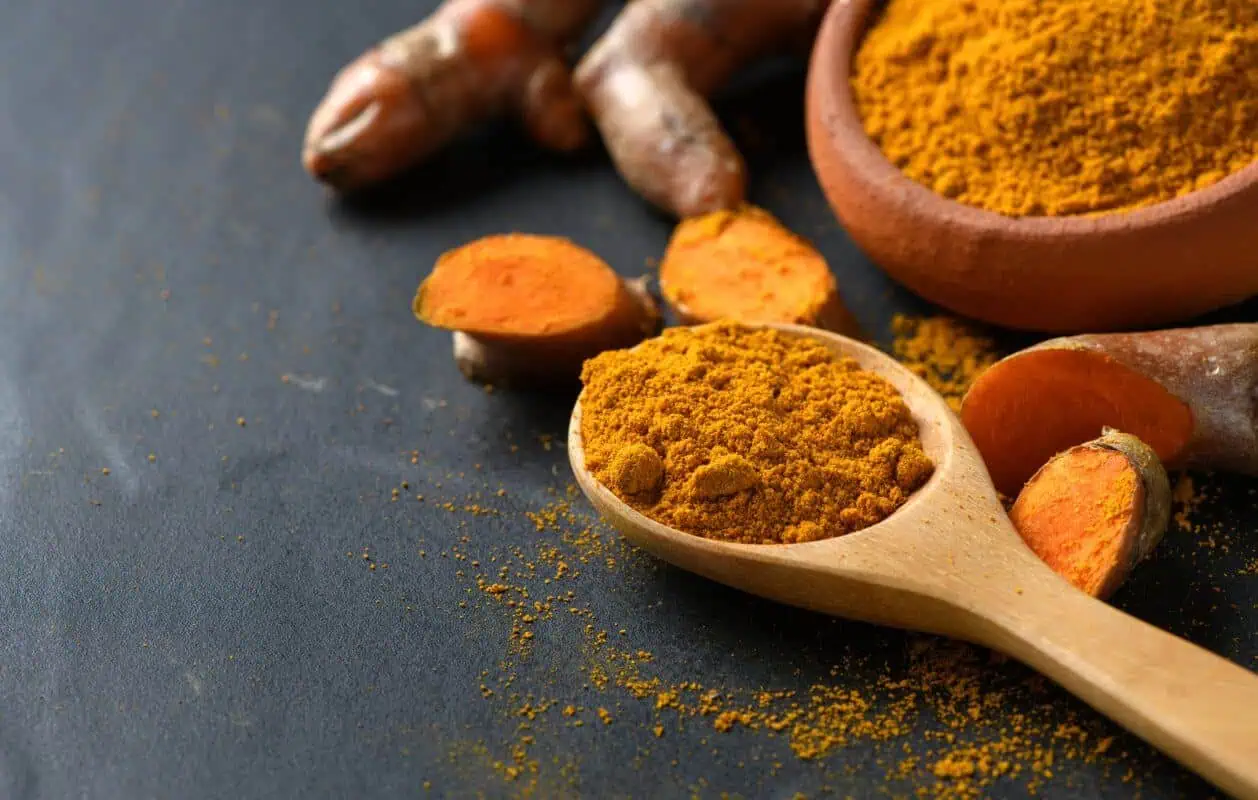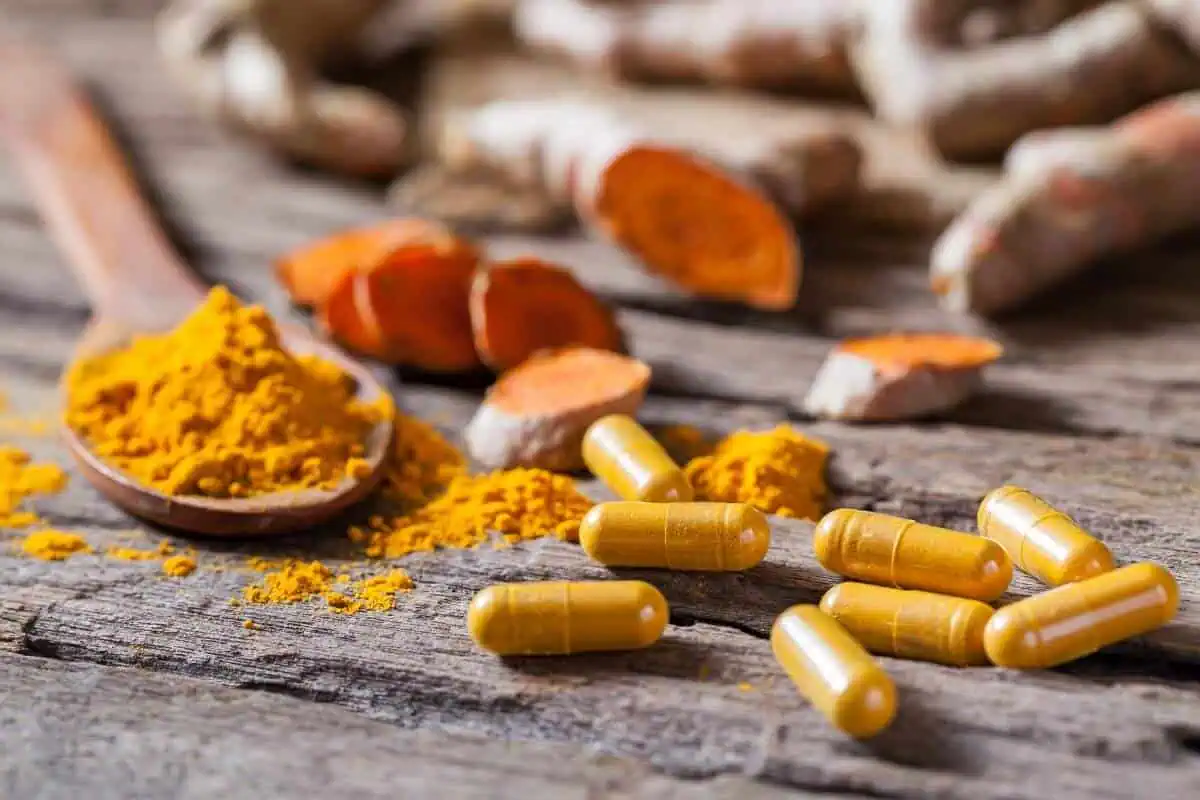By Dr. Chad Larson, narrated by Charles Griffin
Turmeric, a beloved ingredient in East Indian cuisine for centuries, not only adds a burst of color and flavor to dishes but also boasts a wealth of health benefits. As the world constantly evolves, and researchers keep digging deeper into its potential, it becomes increasingly evident that curcumin, the active compound in turmeric, can positively impact various aspects of your well-being. In this post, we explore three compelling reasons why you should consider adding more turmeric to your daily diet.
Alleviating Joint Discomfort
Curcumin, the powerhouse compound found in turmeric, shines as a potent anti-inflammatory agent. Its remarkable ability to combat free radical damage makes it a promising ally in the battle against inflammatory conditions such as osteoarthritis and rheumatoid arthritis. In fact, a double-blind trial conducted on rheumatoid arthritis patients demonstrated the effectiveness of curcumin in reducing inflammation. Furthermore, a clinical trial revealed that a combination of turmeric, boswellia, ashwagandha, and zinc effectively managed pain and stiffness associated with osteoarthritis. So, if you’re seeking relief from joint pain, turmeric could be a natural solution worth exploring.
Enhancing Brain Health and Circulation
Turmeric’s antioxidant and anti-inflammatory properties extend their positive influence on cardiovascular health and cognitive function. Recent research suggests that curcumin may improve measures of artery and blood vessel health, offering potential benefits for your heart. Additionally, some preliminary studies have even hinted at its mood-enhancing effects. By incorporating turmeric into your diet, you might be supporting not only your heart but also your brain.
The potential advantages of curcumin for brain health are particularly intriguing. Studies have shown that curcumin may help enhance brain function and protect against age-related cognitive decline. It does so by reducing oxidative stress and inflammation in the brain, which are key factors in the development of neurodegenerative diseases like Alzheimer’s.
Moreover, curcumin’s ability to promote healthy blood vessels could translate into improved circulation to the brain. This improved blood flow may contribute to better cognitive function, memory, and overall mental acuity. For those concerned about cognitive aging or seeking to optimize their brain health, turmeric can be a valuable addition to their daily routine.
In terms of mood enhancement, some researchers believe that curcumin’s anti-inflammatory properties may indirectly influence mood by reducing inflammation in the brain. While more research is needed in this area, the initial findings are promising and suggest that turmeric may have a positive impact on mental well-being.
Soothing Digestive Woes
Derived from turmeric, curcumin exhibits carminative properties, making it a valuable ally for digestive health. Carminatives, also known as aromatic digestive tonics or aromatic bitters, are renowned for their ability to ease indigestion symptoms, especially when excessive gas is the culprit.
In a double-blind trial, turmeric powder proved effective in relieving indigestion, offering a natural remedy to promote better digestion. This finding underscores the centuries-old wisdom of incorporating turmeric into traditional cuisines for its digestive benefits.
Moreover, curcumin’s soothing effects on the gastrointestinal tract extend beyond just alleviating indigestion. It may also help with other digestive issues, such as irritable bowel syndrome (IBS) and inflammatory bowel disease (IBD). Its anti-inflammatory properties can calm irritated tissues in the gut, potentially bringing relief to those suffering from these conditions. Nevertheless, turmeric’s role in digestion isn’t limited to symptom relief. It may aid in the overall digestive process by stimulating the gallbladder to release bile, which aids in the breakdown of fats. This added benefit can contribute to more efficient digestion and nutrient absorption.
Incorporating turmeric into your diet, whether through delicious curries or convenient supplements, may prove to be a natural and holistic approach to maintaining digestive well-being. So, if you’re looking to soothe digestive discomfort or enhance your overall gut health, turmeric could be the spice you’ve been searching for.
The ancients were indeed onto something when they embraced turmeric as a culinary and medicinal treasure. Each year, the scientific evidence supporting the benefits of turmeric continues to grow. From reducing joint discomfort and supporting heart health to aiding digestion, turmeric and its curcumin content hold remarkable potential for enhancing your overall well-being. Consider incorporating this vibrant spice into your daily diet and experience the difference it can make in your life. Your journey to a healthier, happier you may just start with a sprinkle of turmeric.
We recommend this curcumin/turmeric







